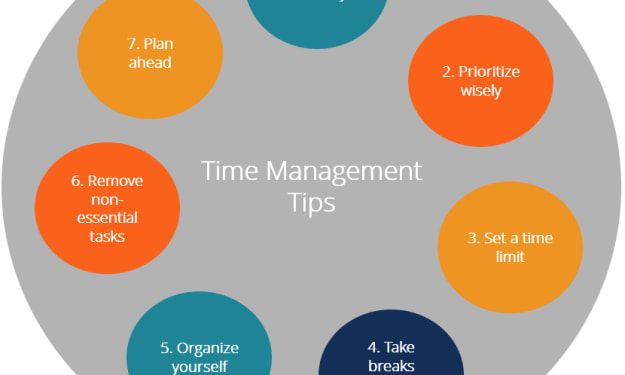Elevate Your Home Recordings: Avoid These 8 Common Mistakes
By avoiding these common mistakes, you can significantly improve the quality of your home recordings.

Home recording is a game-changer for musicians, podcasters, and content creators. It offers unparalleled convenience and the ability to produce high-quality audio without the need for expensive studio time. However, achieving professional-grade recordings from the comfort of your home isn't without its challenges. To help you on your journey, we’ve compiled a list of eight common mistakes to avoid when recording at home.
1. Overlooking Room Acoustics
Room acoustics play a pivotal role in the quality of your recordings. A poorly treated room can introduce unwanted echoes, reverb, and standing waves that muddle your sound.
Solution: Invest in acoustic treatment. Acoustic panels, bass traps, and diffusers can drastically improve the sound quality of your recordings by controlling reflections and absorbing excess sound. You don't need to break the bank—DIY solutions, like heavy curtains and strategically placed furniture, can also help.
2. Inadequate Microphone Technique
Microphone technique is an art form in itself. Poor placement can lead to recordings that are too quiet, too loud, or lacking in clarity.
Solution: Experiment with mic placement. For vocals, try positioning the microphone about 6-12 inches away from the singer's mouth, slightly off-axis to reduce plosives. For instruments, each one has its sweet spot—research and trial and error will be your best friends here.
3. Neglecting Pop Filters
A pop filter is a simple tool that can make a huge difference in vocal recordings by reducing plosive sounds (such as "p" and "b" sounds) that can cause distortion.
Solution: Always use a pop filter when recording vocals. It's a small investment that can significantly enhance the clarity of your recordings.
4. Failing to Manage Background Noise
Background noise can be a major issue in home recordings. Whether it's traffic outside, the hum of an air conditioner, or household chatter, unwanted noise can ruin a perfect take.
Solution: Create a quiet recording environment. Close windows, turn off noisy appliances, and consider recording during quieter times of the day. If background noise is still an issue, use noise reduction plugins in post-production.
5. Skipping Proper Gain Staging
Proper gain staging is essential to prevent clipping and distortion. Setting your levels too high can result in unwanted noise, while setting them too low can make your recordings sound weak.
Solution: Aim for input levels that peak between -6 dB and -3 dB. This range provides a strong signal without risking distortion, leaving headroom for mixing and mastering.
6. Ignoring Monitoring Quality
Your monitoring setup significantly impacts how you perceive your recordings. Using low-quality headphones or speakers can lead to poor mixing decisions.
Solution: Invest in good-quality studio monitors and headphones. This will give you a more accurate representation of your recordings, helping you make better mixing choices.
7. Over processing Your Tracks
While it might be tempting to use every plugin at your disposal, over processing can lead to unnatural-sounding recordings. Less is often more when it comes to effects and processing.
Solution: Use EQ, compression, and reverb sparingly. Focus on enhancing the natural sound of your recordings rather than transforming them completely. Always trust your ears and make subtle adjustments.
8. Not Backing Up Your Work
Imagine losing hours of hard work due to a computer crash or accidental deletion. Not backing up your recordings is a mistake you only make once.
Solution: Implement a regular backup routine. Use external hard drives, cloud storage, or both to ensure your recordings are safe. Many DAWs (Digital Audio Workstations) also offer auto-save features—make sure this is enabled.
Additional Tips for Home Recording Success
Optimize Your Workspace
A cluttered workspace can be distracting and impede your workflow. Keep your recording area organized, with cables neatly arranged and equipment easily accessible. This will help you stay focused and efficient during your sessions.
Plan Your Sessions
Going into a recording session without a plan can lead to wasted time and subpar results. Outline what you want to accomplish before you start recording. Whether it's laying down a vocal track, recording a guitar solo, or experimenting with a new plugin, having clear goals will keep you on track.
Take Breaks
Recording can be mentally and physically taxing. Long sessions without breaks can lead to ear fatigue, making it harder to make accurate decisions about your sound.
Solution: Take regular breaks to rest your ears and mind. Step away from your setup, take a walk, or do something unrelated to music for a few minutes. This will help you return to your session with fresh ears and renewed focus.
Exploring New Techniques
Don’t be afraid to experiment with new recording techniques. Home recording offers the freedom to try out different methods without the pressure of costly studio time. Whether it's using unconventional mic placements, trying out different room treatments, or experimenting with new plugins, exploration can lead to unique and exciting results.
Learn and Grow
The world of audio recording is vast and constantly evolving. Make a habit of learning new skills and staying updated with the latest trends and technologies. There are countless resources available online, from tutorials and forums to webinars and courses. The more knowledge you acquire, the better your recordings will become.
Networking and Feedback
Join online communities and forums where you can share your recordings and get feedback from others. Platforms like Reddit, Gearslutz, and various Facebook groups are excellent places to connect with other home recording enthusiasts. Constructive criticism and advice from peers can provide valuable insights and help you improve your skills.
For more detailed insights and professional tips on avoiding common home recording mistakes, check out our full article here.
Home recording is an exciting journey filled with endless possibilities. By avoiding these common mistakes, you can elevate the quality of your recordings and achieve professional results from the comfort of your home. Remember, every great recording starts with a solid foundation—optimize your environment, refine your techniques, and never stop learning. Have any tips or experiences to share? Leave a comment below and join the conversation!
What challenges have you faced when recording at home? Share your experiences and solutions in the comments below! Let's help each other improve our home recording setups and create amazing music together.
About the Creator
Music Industry Updates
Welcome to Music Industry Updates, your go-to hub for the latest happenings in the music world.
Stay tuned, stay informed, and stay inspired with Music Pulse – where every beat counts.
Enjoyed the story? Support the Creator.
Subscribe for free to receive all their stories in your feed. You could also pledge your support or give them a one-off tip, letting them know you appreciate their work.






Comments
There are no comments for this story
Be the first to respond and start the conversation.